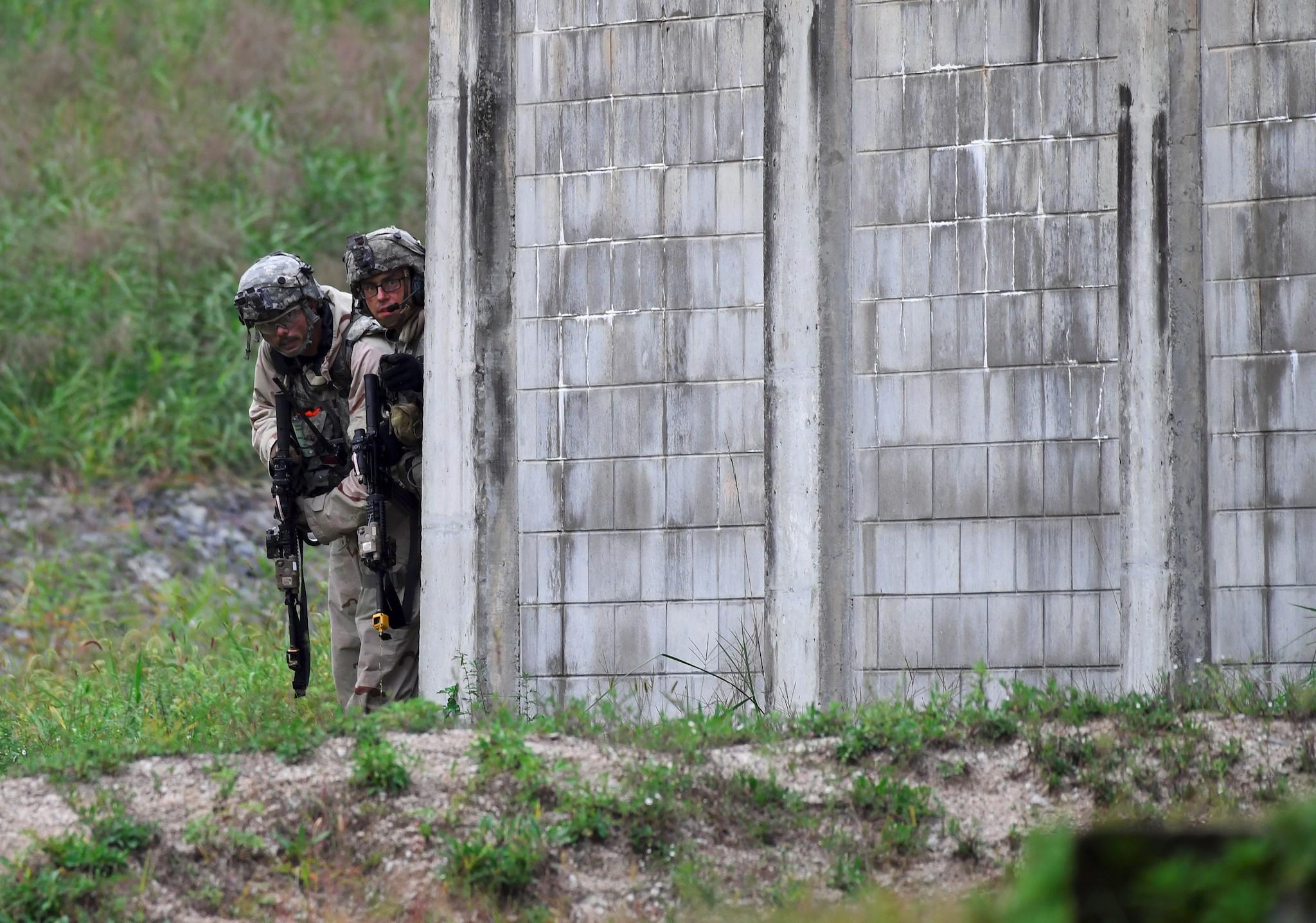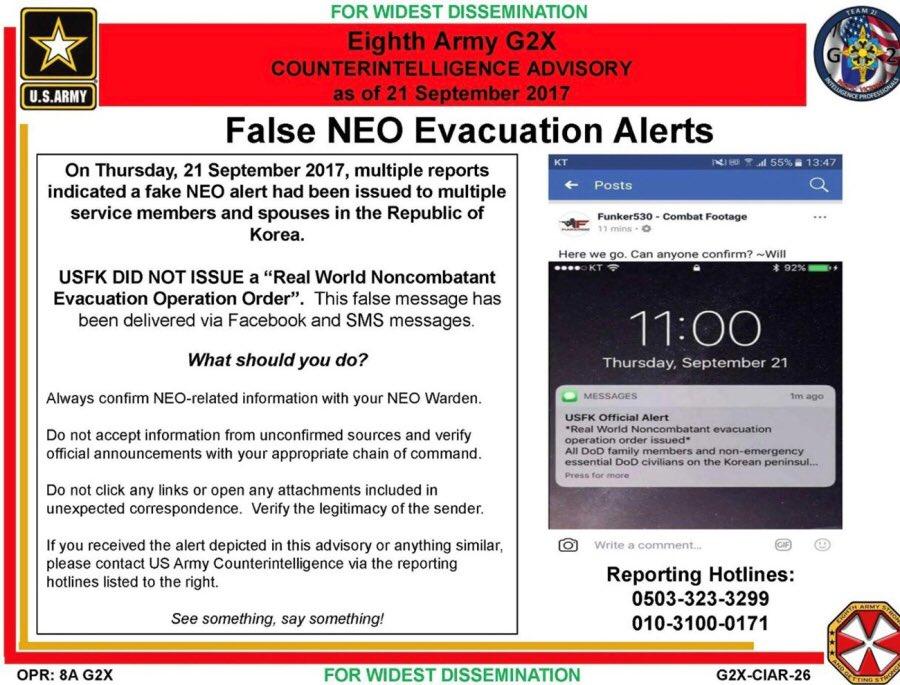US forces in South Korea receive fake, urgent message telling them to evacuate immediately
The military can't yet say who sent out the targeted alerts

US troops in South Korea have been sent an urgent message telling their families to flee the country. But soon after it was revealed as fake.
The US Army has now been forced to send out a message telling troops to check any messages and ensure that they are legitimate.
Officials have so far not been able to publicly confirm where the messages came from, or whether they are related at all to ongoing tensions with North Korea.
Kim Jong-Un and his military are thought to command surprisingly sophisticated cyber warfare operations as part of its army.

The alerts told staff they all noncombatants are going to be evacuated out of the country. Ordinarily, such an order would only come in the face of danger for people inside Korea – in the event of an attack from the North, for instance.
The hoax messages were sent by SMS and Facebook, to "multiple service members and spouses in the Republic of Korea", according to an official warning sent to the army. Troops have now been asked to report any information they find to counter-intelligence officials, apparently to try and stop the spread of the fake messages.
Troops have now been sent another urgent message, making clear that the US Army didn't send out such a message, and warning troops that they should be careful about any further messages they receive.

The military isn't thought to have a secure or authenticated way of spreading such messages legitimately, and instead just tells troops to "verify the legitimacy of the sender".
Join our commenting forum
Join thought-provoking conversations, follow other Independent readers and see their replies
Comments